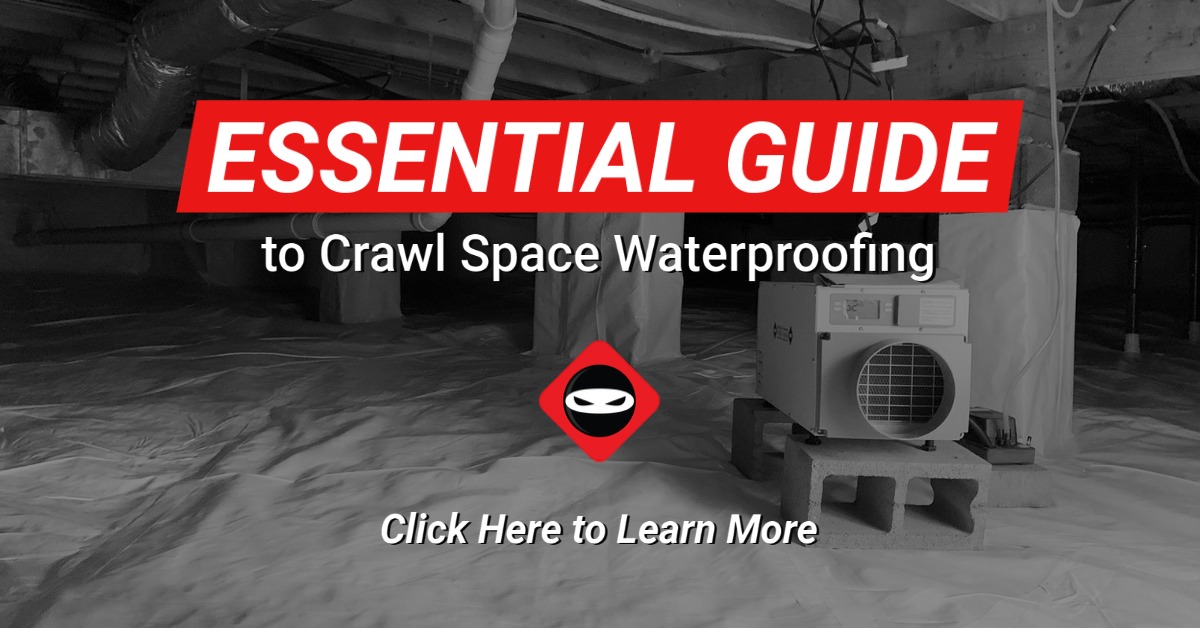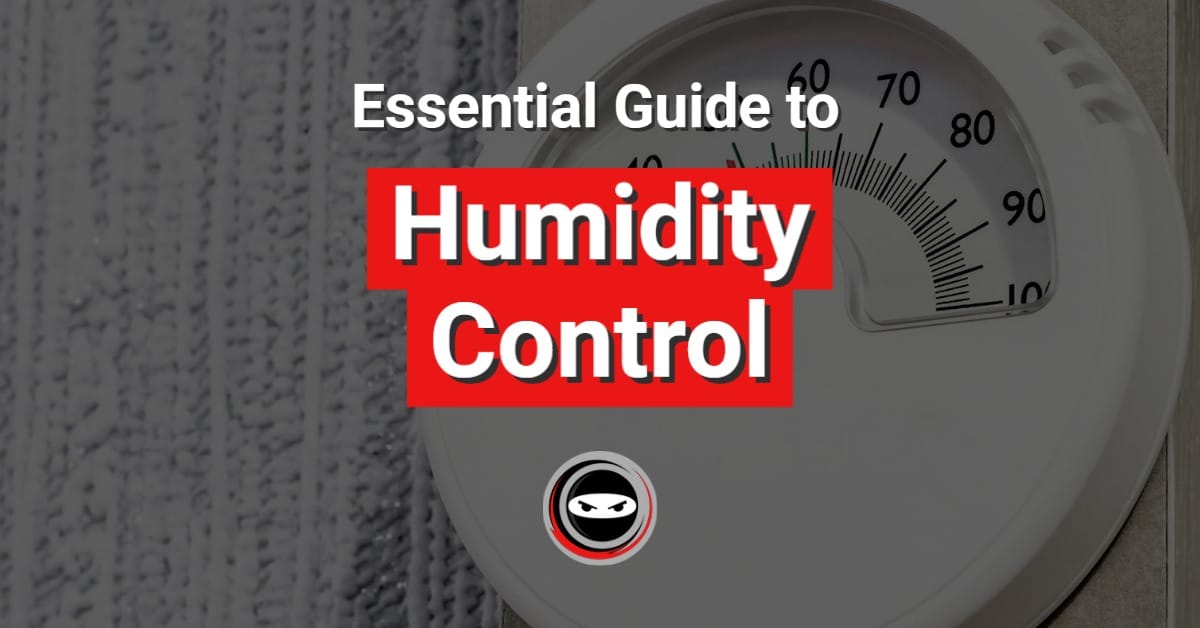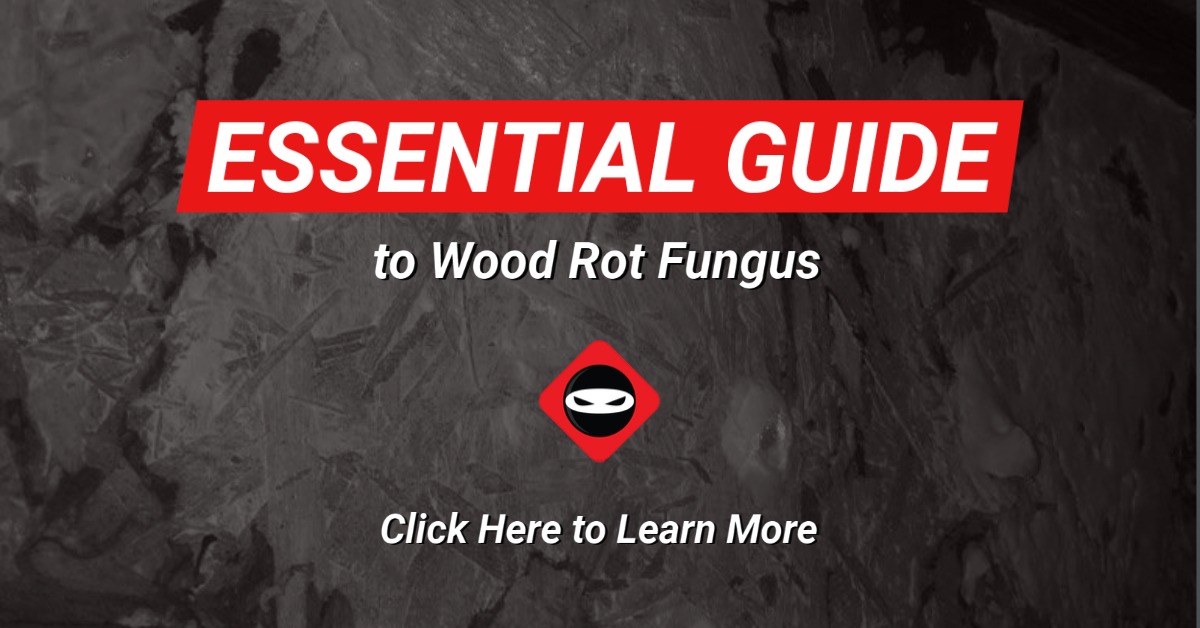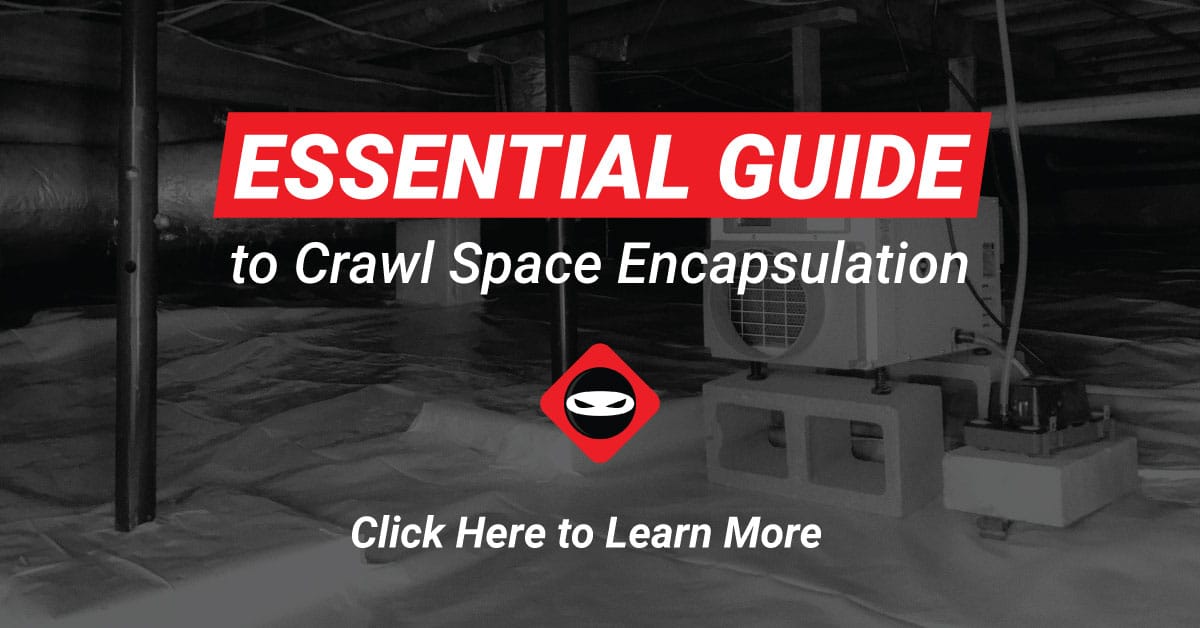Crawl space odors are difficult to deal with, and one of the worst is the cat urine smell. Many crawl spaces suffer from cat pee odors, and often times the vapor barrier is the cause. Whether directly or indirectly.
The type of plastic and installation methods can create cat urine type odors in the crawl space. Eventually, these odors enter your home, so what can you do to fix this issue?
4 Common Causes of Crawl Space Cat Urine Smells
We find the cat urine smell in many crawl spaces comes from 4 common sources.
- Feral cats using the crawl space as a litter box
- Cheap vapor barriers that allow moisture to penetrate them and eventually grow odor causing bacteria
- Crawl spaces not properly ventilating odoriferous soil gases
- Crawl space plastic installed over old vapor barrier
As you can imagine, the first one is not something we deal with, so I recommend you call a critter wrangler company for that. The other three, I will discuss why the odors are happening and what to do to protect your crawl space.
New Vapor Barriers Can Have Odors from the Manufacturing Process
Some vapor barrier manufacturers say I am a reinforced plastic hater, and that simply is not true. I used to install crawl space vapor barrier with reinforcement until I learned the potential of odors building up due to what I consider a design flaw. It may or may not be due to the reinforcement itself, but that the reinforced plastics are multilayer.
The Drawbacks of Using Reinforced Plastic as Vapor Barriers
If a multilayer vapor barrier is installed and reinforcement is present, it can have air gaps. The cheaper the plastic it seems, the more the air gaps. If I install plastic with air gaps on wet soil and the air is replaced with water and stagnates, what happens?
Odors!
Once the water infiltrates the air gaps located in reinforced plastic, it rarely leaves. Due to this potential odor issue, we only installed solid vapor barrier.
The Mystery of Odors and Reinforced Plastic in Crawl Spaces
I know many blame soil gases alone for this problem, but I interviewed a homeowner on our YouTube channel that shared his experience. Feel free to listen to the entire interview. But he said he could smell cat urine smell before the plastic was placed in the crawl space. That’s right, if cat pee odors only came from soil gases, why was the plastic giving off a urine odor before installation?
Soil Gas Odors
Many of the soil gases that enter the crawl space are a combination of gases. All of these gases mixing together could smell like urine or ammonia or something else. By the way, ammonia is a component of cat urine. According to petmd.com, if cats smell ammonia, they are likely to urinate there.
Soil can off gas many types of gases. The primary three are:
- Nitrogen
- Carbon dioxide
- Oxygen
On a side not when asking where the make-up air comes from when you ventilate an encapsulated crawl space, most likely the soil. Other gases that come from soil include:
- Nitric oxide
- Nitrous oxide
- Methane
- Ammonia
Man, I feel sorry for anyone with ammonia and methane gases in their crawl space. A farty urine smell must be rough.
The point is, all crawl spaces are dealing with soil gases. This is why we recommend ventilating the crawl space, especially after crawl space encapsulation. This ventilation is done per EPA guidelines of 1cfm per 50 square feet of crawl space.
Keep in mind, some soil gasses are odorless. Unfortunately, they tend to be the most harmful. Radon gas is colorless, odorless and virtually undetectable without proper testing. In crawl spaces where radon is present, install a sub-membrane depressurization system to protect your home and family.
Installing New Plastic Over Old Plastic
The fourth issue we see that can create cat pee and other odor problems is new plastic over old. Just like some cheap roofers will install new shingles over old shingles, but reputable roofers do not. We feel installing new plastic over old serves no long term benefit, and the reasoning for doing it is to save money.
The Importance of Proper Crawl Space Encapsulation to Prevent Odors
The effects could be the build up of mold and other biological matter that can smell horrible. Here is a customer testimonial of someone that had a cheap crawl space company install new plastic over old. The smells went away once they hired us to remove all the plastic and install even newer plastic correctly.
Unfortunately, sometime the fix for crawl space odors is a crawl space encapsulation redo. This is why you should hire the best crawl space contractor to do it right the first time.
Contact Crawl Space Ninja for Basement Waterproofing and Encapsulation
Please contact us to schedule your assessment to fix your crawl space, basement issue.
Do you need help with mold removal, crawl space encapsulation, crawl space insulation, vapor barrier, waterproofing, foundation repair, basement waterproofing, or controlling humidity in your crawl space?
If you live in Georgia, Delaware, North Carolina, South Carolina, Tennessee, or Kentucky, Crawl Space Ninja can help!
Also, let us know in the comments below if you have an idea for a new blog topic.
DIY Crawl Space Repair
Perhaps you’d like to tackle your own crawl space repair. Visit our DIY Store.
Join Crawl Space Ninja as an Owner
Learn about Crawl Space Ninja Franchise opportunities.

Ready to find out more?
Drop us a line today for a quote!
Click Here




17 thoughts on “Causes of Crawl Space Cat Urine Smell”
This week our Master Bedroom suddenly reeked of cat urine…
Last year I had a guy put black visqueen under the effected area of the house in the crawl space as the pre purchase inspector said it was missing from that corner of the house. The guy I hired used black visqueen. 1 year later that corner of the house (master bedroom) reeks of cat urine. The only other plastics down there are clear plastics. Can this odor occur with the black and clear plastic sheeting? I thought maybe I had mice in the attic but I can’t find anything about their urine smelling cat. Any ideas? ~Sherry M
Hi Sherry, since the new plastic does not sound reinforced, it may be that the contractor inadvertently covered up some feces and urine from pests that could have gotten in over the years. Did you notice the smell soon after turning on the heat? This time of year, the heat can draw in odors from ducts that have been used by small rodents as well. Plus the “stack effect” means that now that your heat is on, it is forcing more crawl space air into your home. I would recommend having a crawl space professional and or a pest control company take a look. If you are in our service area we would be glad to help. Our service area: https://crawlspaceninja.com/service-area/. I hope that helps and thank you for asking such a great question.
What about a product with 100% of the surface protected by reinforcement made from strengthened polyethylene? It says it is a one piece product.
Hi Sheri, I apologize but I am not sure because I am not familiar with that product. Sorry I couldn’t help.
Here is the only brand we recommend. https://diy.crawlspaceninja.com/crawl-space-ninja-12-mil-crawl-space-vapor-barrier-1000-sqf/
I disagree completely with the stated source of the smell. I had our crawlspace encapsulated by a highly recommended company several years ago, and had the cat urine smell for several years. The company tried to convince me it was everything from moisture to decomposition to mold, anything but the vapor barrier they used. But I was there the day they installed it. When they were rolling it out in the yard before they ever took it under the house, it stunk like cat urine. It gave off the smell as soon as they took it off the roll. I asked the guy installing it about the smell and he said, “Yeah, this stuff really stinks.” I asked how long it would have the smell and he said “A couple of years.” He was right. (I foolishly thought the smell would stay under the house or I would have stopped him right there.) Clearly this is a known issue, and clearly the companies who use the smelly material don’t want to admit that the problem exists. Several years later we had a different company encapsulate the crawlspace under an addition and I specified material that had no odor. The company knew about the problem and said they only used material that had no odor. And they did. No odor, no problem.
Just to clarify my post, what I was disagreeing with in my above post with was the idea that it is anything other than the vapor barrier that caused the cat pee smell. I might not have been as clear there as I should have been. In my experience, it was the vapor barrier and nothing else that caused the smell. That vapor barrier was a multi-layer barrier with fiber reinforcement.
Did the smell ever go away? I just had my crawl space done and have the same problem. They are trying to tell me it’s the ph of my soil. They say they are going to treat my soil to get rid of the smell but it’s taking them forever to deal with the problem.
Unfortunately, we have not seen evidence that it goes away on its own. Please watch this for more information: https://www.youtube.com/watch?v=dpIFVyawFek&t
In the above comment I probably wasn’t as clear as I should have been. What I was disagreeing with was the idea that the smell came from anything but the vapor barrier. Clearly, based on my experience, one type of vapor barrier caused substantial odor, and another didn’t, in what was pretty much an identical situation concerning type of soil, available moisture, etc. Now I have to say, my experience doesn’t support the idea that the smell is caused by the breakdown of the multi-layer barrier, because it had that smell before they ever took it under the house. Nonetheless, the effort to blame it on mold or moisture or decomposition, instead of the vapor barrier itself, was clearly incorrect, in my case.
Thank you so much for your insight on the cat urine odor coming from your personal experience with a multi-layer reinforced vapor barrier. We have witnessed others that had the same experience which is why we only use a solid plastic for our vapor retarder versus the reinforced multi-ply plastics that seem to be standard in crawl space encapsulation industry.
Will installing your recommended fan assist in remediating the odor? My crawl space is vented, not encapsulated… My thinking was to install a vent fan or two to move more air.
Yes the fans will move air but make sure the makeup air has low humidity or you could be adding more humidity than is necessary to the crawl space. If that is the case you may want to make sure you have a dehumidifier running sealing up all the vents but one or 2 with the fans blowing air out. Please take a look at this: https://www.youtube.com/watch?v=8KkJhScJVlI&t=7s
In your experience Mr Church does spray foam leave a cat urine odor?
We have not experienced that but we have also not used every form of spray foam out there so I can’t rule it out. Our spray foam is UL GREENGUARD Gold Certified, contributing to healthier indoor environments. UL GREENGUARD Certification Program
Products that have achieved GREENGUARD Certification are scientifically proven to meet some of the world’s most rigorous third-party chemical emissions standards, helping to reduce indoor air pollution and the risk of chemical exposure. I would find out what spray foam was used and do some research on that product. Thanks.
This is an old post but I need some help…
My friend has a cat urine smell coming from under his house, up through the vent. When he goes down to inspect, there are puddles all over the vapor barrier and there was a small opening to the bottom of the house for animals to get in, including neighborhood cats.
Do you think it’s that the puddles are cat pee on what is otherwise good vapor barrier. Or do you think the puddles are condensation on bad vapor barrier and we are just now learning about it?
Hi Kelsey, that is a tough question to answer without doing an inspection. Can you contact a local company to take moisture readings and see if your crawl space is damp? I’d also block off the opening to try and keep the animals out. Hope that helps.